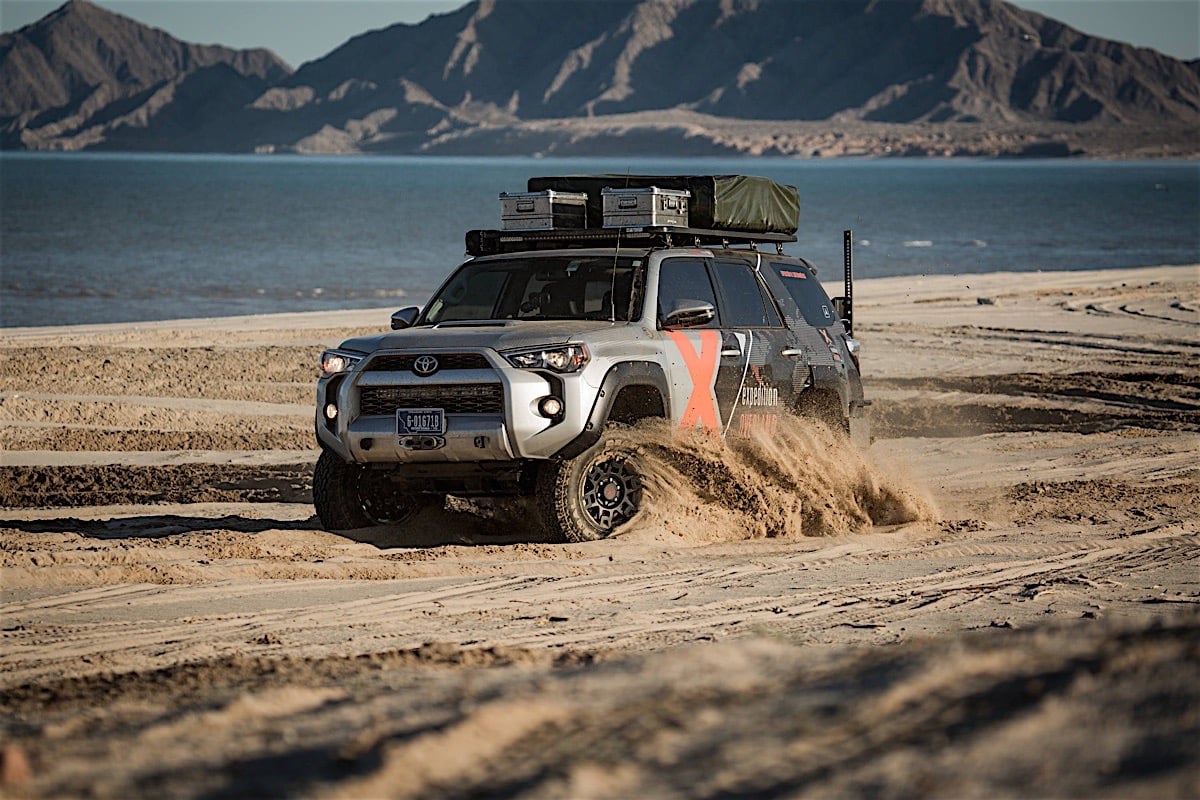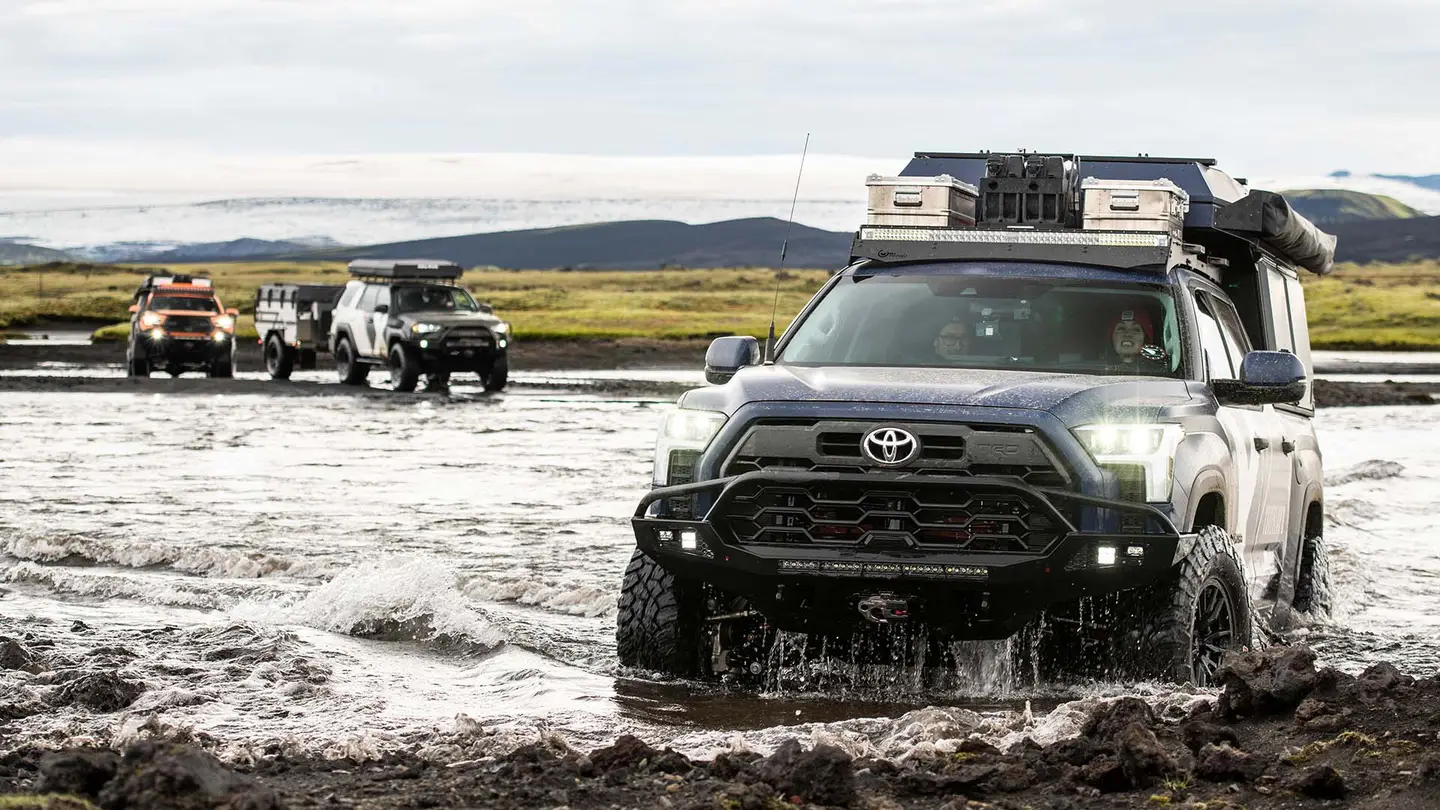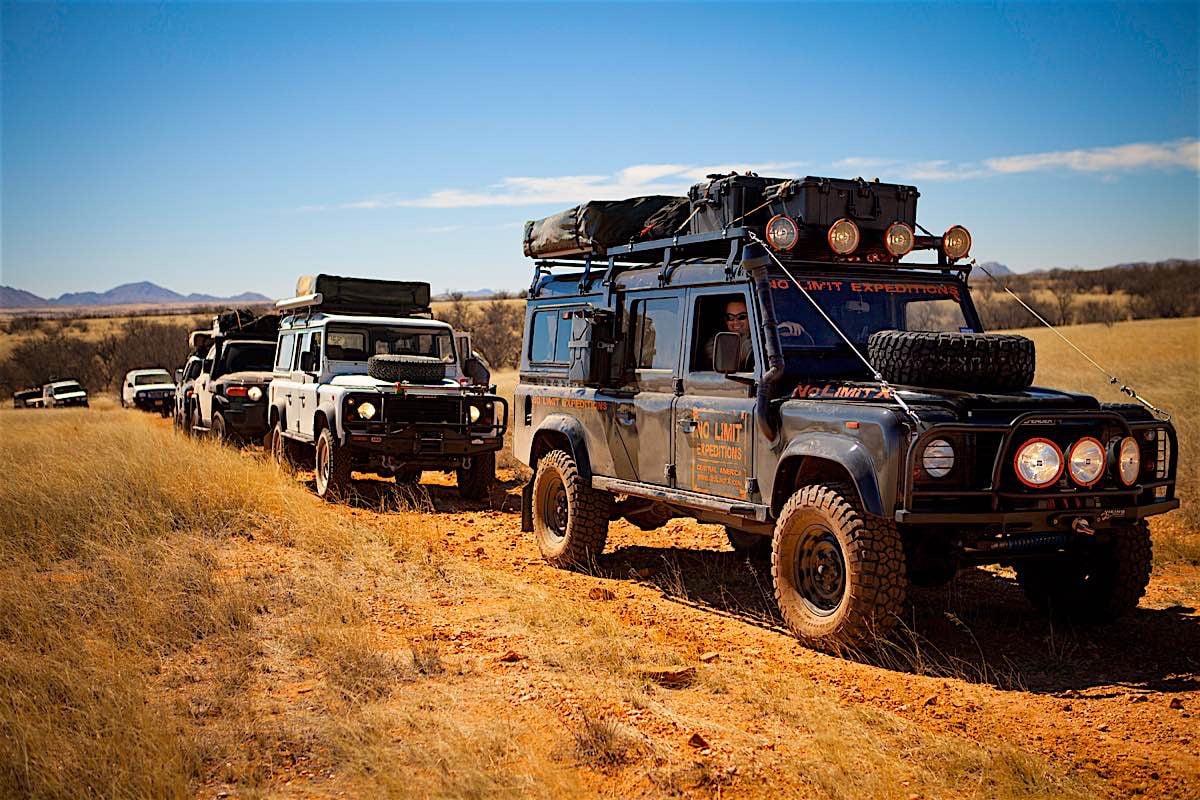
Whether you are a traditional traveler, brand new to car camping or an overlanding pro, it’s always opportune to review the perks of camper travel. In the beginning our of travel journey we were fairly “traditional’, traveling mostly by plane and backpacking through major cities. And although we have thoroughly enjoyed our past travels, we realized that car camping would allow us to see more, travel longer and give us a richer experience.
Overlanding and camping have their unique quirks and similarities, and knowing how to tell the difference between both is the trick to fully understanding the concept behind these terms. In this article, you will learn all you need to know about camping and overlanding experiences.
What Is Overlanding?
Overlanding is a self-reliant, vehicle-based on-road and off-road travel to remote locations. It is a journey of resilience and adventure where the focus and enjoyment are not on the destination but the trip itself. The earliest record of what is considered a part of overland history originated in Australia. In the early 1900s, between 1906 and 1910, Australia opened a route for the sole purpose of herding cattle for long-distance travel. These routes were used for trading farm animals and traders accompanied farm animals, probably on foot, to finalize these deals. Although modern overlanding has nothing to do with animals, this period is thought to have pioneered what has now evolved into present-day overlanding.
What Is Camping?
When you think about camping, you envision a quaint little trip with your family to a picturesque location where you can enjoy the outdoors for a few days before returning home. Camping is a time for people to relax and explore the outdoors, usually dedicating time to enjoying nature in one area. Camping trips are fun recreational activities to escape urban life for a more natural environment for a limited time. It can be done in different ways. Campers can be involved in tent camping, backpacking, survivalist camping, van camping, or glamping. Each term defines different camping techniques depending on preferences, purpose, and comfort levels.
Here’s how overlanding and camping compare to each other
Mode of Travel
One aspect that differentiates overlanding from traditional camping is the mode of travel. We’ll discuss how overlanding involves traversing long distances, often in a 4×4 vehicle or a rugged off-road camper, to reach remote and off-the-beaten-path destinations. On the other hand, traditional camping typically involves shorter distances, often reached by car or RV, and often focuses on established campgrounds and recreational areas. Understanding the mode of travel can help you determine the level of adventure and exploration you seek.
Sense of Adventure
Overlanding is synonymous with adventure. We’ll explore how overland camping enthusiasts embrace the spirit of exploration and seek out remote, untouched locations. Overlanders thrive on the challenges and unpredictability that come with venturing off-road, navigating uneven terrains, and embracing self-sufficiency. In contrast, traditional camping allows for a more leisurely and predictable experience, often centered around established campsites with established amenities. We’ll discuss how your appetite for adventure can influence your choice between overlanding and traditional camping.
Exploration Is The Focus
- One of the key differences separating overlanding from camping is its emphasis on active exploration. Rather than simply making one’s way to the campsite, setting up, and then enjoying the weekend, overlanding centers itself around the journey and makes transportation to and from the wilderness a key component of the overall experience.
- How does that focus express itself from a practical perspective? It’s helpful in some ways to compare overlanding to hiking rather than camping. Both overlanding and hiking are activities where the fun is focused on moving through new landscapes, obstacles, and weather conditions, pushing into fresh territory and savoring the experiences that come with it. Camping can be a part of hiking, but it’s not the driving force for hitting the trail.
- To put it more succinctly, camping is an activity where the destination is what’s most important, whether that’s a quiet spot by a lake or a commercial campground packed with a pool, a softball diamond, and a hundred other families. Overlanding redirects the energy into the expedition itself.
Flexibility and Freedom
Overlanding offers unparalleled flexibility and freedom. We’ll discuss how overlanders have the liberty to change plans and adapt to new destinations and routes spontaneously. Overlanders can explore lesser-known trails, discover hidden gems, and immerse themselves in the wilderness. Traditional camping, on the other hand, often involves adhering to predetermined campsite reservations and following established itineraries. We’ll explore the joy of embracing the unknown and the freedom to roam in overlanding, contrasting it with the comfort and structure of traditional camping.
Connection with Nature
Both overlanding and traditional camping provide opportunities to connect with nature, but they differ in the nature of the connection. We’ll discuss how overlanding allows for a deeper immersion in the natural environment, with the potential to camp in remote and pristine locations. Overlanders can wake up to breathtaking landscapes, undisturbed wildlife, and awe-inspiring sunsets. Traditional camping, while also offering a connection with nature, often takes place in more populated campgrounds and recreational areas. We’ll explore the tranquility and solitude that come with overlanding, contrasting it with the social aspect of traditional camping.
Planning The Journey
The final major difference between overlanding and camping has to do with planning. When camping, it’s enough to know the destination and the most expedient way to get to it. Overlanding, on the other hand, means choosing a path that is equal parts challenging and fun, and taking advantage of an area’s geography to maximize the beauty and interest of the journey itself.
Then there’s the fact that overlanding expeditions tend to involve not just one campsite but several, or rely on finding a hospitable place to stop and spend the night while en-route. Similar to hiking, the latter requires a familiarity with the trail in order to know when to press on and when it’s time to retire for the night. Overlanding trips can last for days, weeks, or even months at a time, with logistics that go well beyond selecting a campsite and paying a park access fee.
Community and Culture
Overlanding has cultivated a unique community and culture that sets it apart from traditional camping. We’ll discuss the camaraderie and sense of belonging that overlanders experience, often sharing tips, stories, and resources with fellow enthusiasts. Overlanding events and meetups foster a vibrant community of like-minded individuals. Traditional camping, while also fostering connections, often lacks the same level of community and culture. We’ll explore the joy of building lifelong friendships and the shared passion found within the overlanding community.

Breaking out of the confines of traditional camping, whether that means avoiding crowded campsites and RV parks, or turning off the pavement whenever possible, opens up so many more places to explore. If your vehicle is capable of providing a comfortable ride for a day’s travel down the highway and equally capable of driving up a rocky dirt road, connecting your favorite places for one epic adventure becomes easy. Suppose you’re comfortable in the wider range of temperatures and weather conditions an overland vehicle can offer. In that case, you won’t have to cram your adventure into the same weather window as every other traveler. Overlanding simply gives you more options.